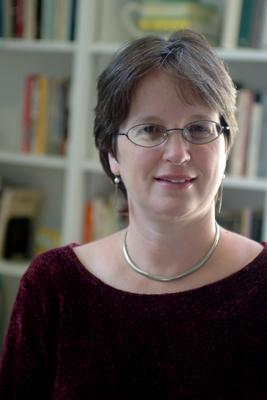Karen Sánchez-Eppler, professor of American Studies and English, has been elected vice president of C19: The Society of Nineteenth-Century Americanists. Her vice presidential term began on July 1 and will continue for two years, after which she will serve for an additional two years as president of the society.

Inaugurated in 2010, C19 was founded by Christopher Castiglia ’83, a professor of English at Penn State, to be the first academic organization specifically for scholars of the American 19th century, and it has already grown to more than 400 members. “In some ways, it’s sort of surprising that such a society didn’t exist before,” Sánchez-Eppler said. Other major scholarly organizations have long had large contingents of 19th-century Americanists, but she postulates that “possibly because of the ways that the 19th century has been the center of the [American historical and literary] canon, it didn’t have its own [organization].” A shift took place around the start of the 21st century, however: now that the 20th century is officially in the past and rivals the 19th as the canonical center, “the 19th century suddenly needs to define itself more explicitly.”
To that end, C19 has so far created a listserve to facilitate conversations among its members and will soon begin publishing J19: The Journal of Nineteenth-Century Americanists. After its second biennial conference—held in Berkeley, Calif., in April of this year—a committee nominated Sánchez-Eppler for vice president and asked her to submit a campaign statement. She wrote:
“The energy and intimacy of the first two C19 conferences, the curiosity and generosity at weekly play on the C19 listserve, and the promise of the journal, attest to the diversity and vitality of our field and the abiding value in intellectual communities. As someone not associated with a major research university, I know first-hand how vital scholarly associations can be in fostering intellectual growth and productivity. Studying the nineteenth century makes me well aware of the ways that institutions shape discourse and it is a delight to be present at the burgeoning of this one. The challenge now lies in developing structures that can renew and sustain that avidity as newness fades. How do we promote inclusiveness without losing focus? How do we deepen collaborations? How do we ensure that C19 keeps being so smart, and challenging, and fun? At a time when productive dialogue in the public sphere is clearly in jeopardy, building structures for rich listening and collegial conversations feels particularly urgent and useful. And surely there is much to learn from the disasters and accomplishments of our nineteenth century.”
Now that C19’s membership has elected her, Sánchez-Eppler’s duties will include helping to coordinate the program for the next conference and assisting with the launch of the journal—a task for which she believes she is well-prepared, having cofounded The Journal of the History of Childhood and Youth in 2007. But her main work, she says, will be “about figuring [out] what kinds of roles the society can play in people’s lives and how it can be a support for intellectual work—especially, I think, for scholars who are in more isolated places.”
Sánchez-Eppler holds a Ph.D. in English from The Johns Hopkins University. She is the author of Touching Liberty: Abolition, Feminism, and the Politics of the Body (University of California Press, 1990) and Dependent States: The Child's Part in Nineteenth-Century American Culture (University of Chicago Press, 2005). She has been on the faculty at Amherst since 1988 and was the first faculty advisor to the Center for Community Engagement. In the coming semester, she will be teaching a course on Emily Dickinson in collaboration with the Emily Dickinson Museum, as well as a new introductory American Studies course, “Global Valley,” which focuses on local history. She says she feels particularly lucky to work in a place with such a vibrant and fascinating 19th-century past and is delighted that a search she chaired last year has brought to the college three more scholars of early American literature and history.